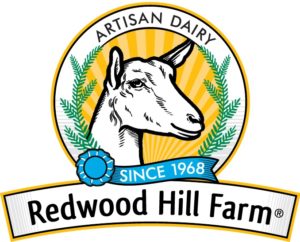
Located among the picturesque redwoods of Sonoma County in Northern California, Redwood Hill Farm & Creamery has been producing award-winning goat milk yogurt, kefir, and cheese for almost 50 years. Created in 2010, the company’s sister brand, Green Valley Organics, makes lactose-free yogurt, kefir, sour cream, and other specialty dairy products. Redwood Hill Farm & Creamery’s vision is to be a “different kind of creamery,” reflecting the values and sustainability of a family farm while creating delicious dairy products of the highest quality for everyone to enjoy.
Beginnings
In 1968, the Bice family moved from Los Angeles to Sebastopol, a quiet town about 60 miles north of San Francisco. Inspired by the Back to the Land movement, the Bices started a farm and goat dairy that would nourish not only their own family, but many others for generations to come. Although this new rural lifestyle took some getting used to, the Bice children quickly fell in love with the farm and animals, raising and showing goats through 4-H. Soon the family had accumulated about 80 goats—enough for an entire herd—and began selling goat milk to local health food stores under the Redwood Hill Farm label.
Growing the Business
In 1978 Jennifer Bice, the oldest of the 10 Bice children, assumed ownership of the farm along with her late husband, Steven Schack. Guided by the same values as her parents—producing delicious and nourishing 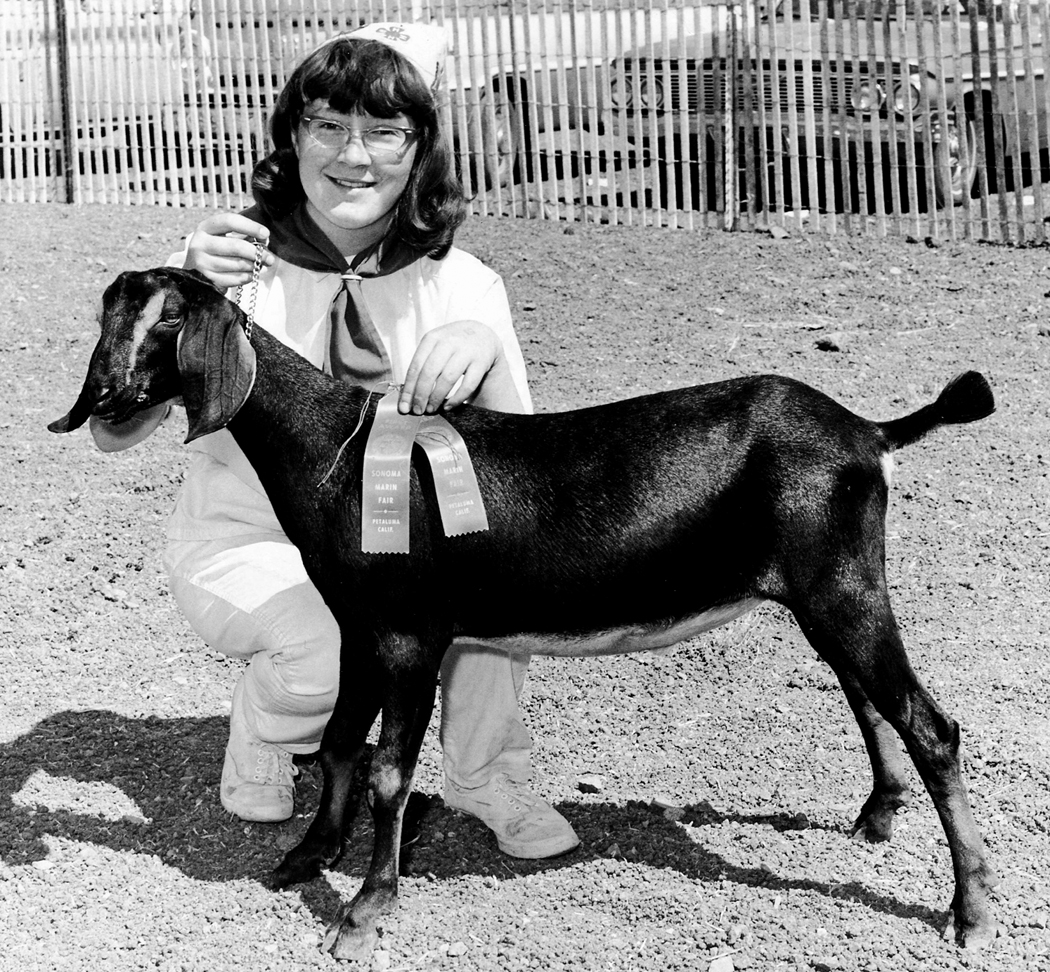 food, treating animals humanely, and giving back to the land—she and Steven expanded the business to produce a greater variety of goat milk products and diversified the dairy goat-breeding program. In 2010, Redwood Hill Farm & Creamery created Green Valley Organics so that people with lactose intolerance could bring real dairy back into their lives, enjoying its health benefits and great taste without digestive troubles.
food, treating animals humanely, and giving back to the land—she and Steven expanded the business to produce a greater variety of goat milk products and diversified the dairy goat-breeding program. In 2010, Redwood Hill Farm & Creamery created Green Valley Organics so that people with lactose intolerance could bring real dairy back into their lives, enjoying its health benefits and great taste without digestive troubles.
A master cheesemaker and expert goat breeder, founder Jennifer Bice runs Redwood Hill Farm & Creamery to this day. Her passionate dedication to goats, as well as her commitment to serving a community of people who could otherwise not enjoy real dairy, was foundational in creating widespread consumption of artisan goat milk products and lactose-free cow milk dairy. Green Valley Organics is the only line of cultured lactose-free dairy in the country.
First Certified Humane® Goat Dairy
Always on the cutting edge of taking care of people, animals and the 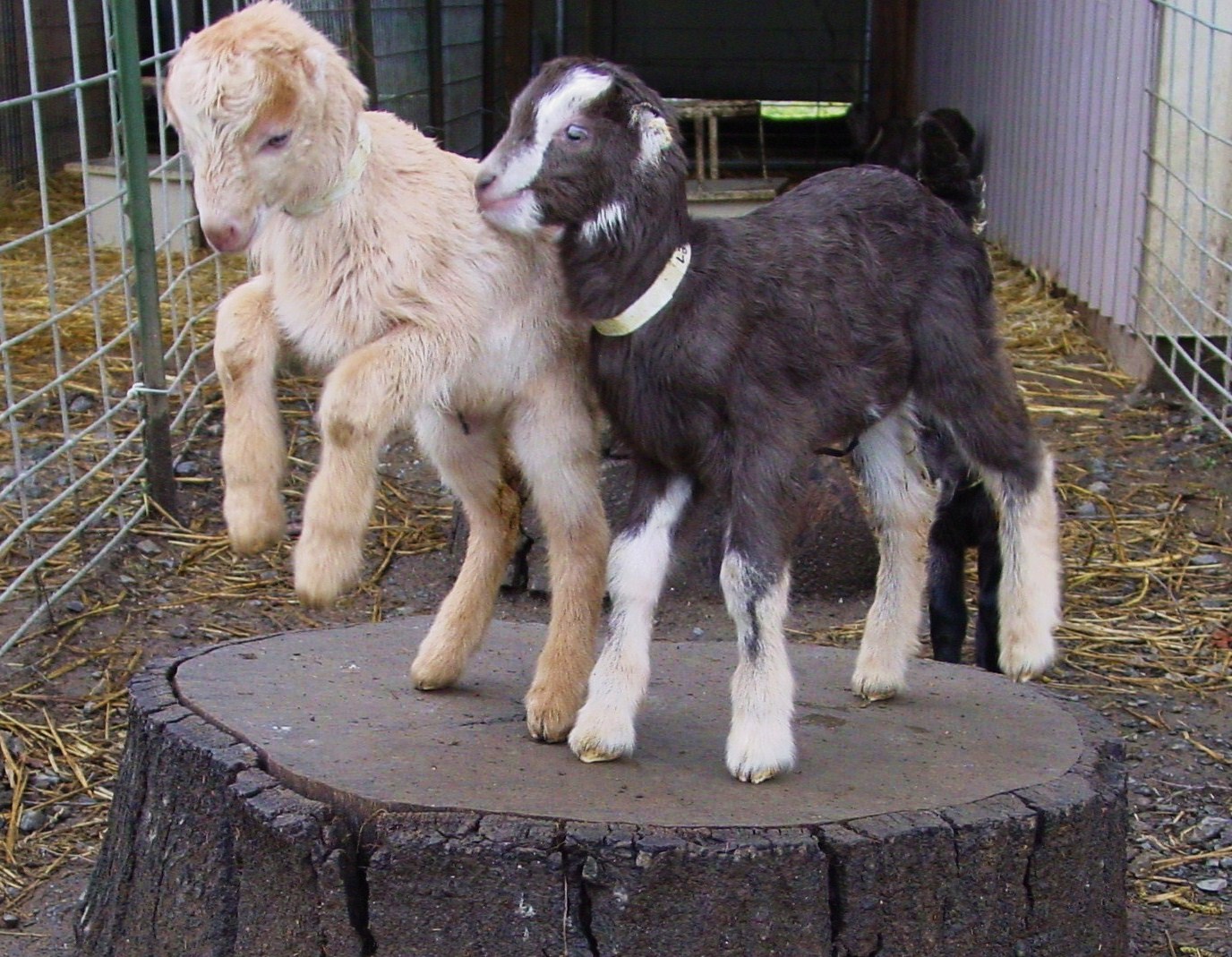 planet, Jennifer Bice’s herd of Saanen, Alpine, Nubian and La Mancha
planet, Jennifer Bice’s herd of Saanen, Alpine, Nubian and La Mancha
dairy goats was the first to become Certified Humane® in the U.S. in 2005. Although her farm had been using humane practices consistent with the Certified Humane® standard for decades, she wanted to give consumers the additional confidence of a third-party certification and the assurance that high standards of animal care were being met.
As the business grew, Redwood Hill Farm & Creamery brought on additional dairies to ensure a steady milk supply. In 2012, the company took their commitment to animal welfare one step further, helping each of their supplying dairies achieve independent certification from Humane Farm Animal Care (HFAC). Being Certified Humane® is now a requirement for all of the family farms that supply milk to Redwood Hill Farm and Green Valley Organics.
Sustainable Values
Sustainability has remained a guiding principle for Jennifer Bice throughout the years. The company’s certified organic creamery, just three miles away from the original Redwood Hill Farm, runs 100% on renewable energy. Two acres of rooftop solar panels provide 85% of its energy needs and the remainder comes from sources like geothermal and wind, via Sonoma Clean Power. Extensive water-saving measures are in place, including a system that pumps graywater to neighboring fields for irrigation. And the company is continually taking steps to make its creamery more sustainable through recycling, insulation, eco-sanitizers, LED and sensor lighting, and electric vehicle charging stations.
Sustainability means investing in the community as well. For over 30 years, Redwood Hill Farm & Creamery has supported youth and agricultural organizations, local health needs and environmental causes, including Community Child Care Council of Sonoma County (4Cs), Center for Climate Protection, Ceres Community Project, Daily Acts, Food for Thought, Land Paths, Marine Mammal Center, Rotary Club Sunrise, Sonoma Humane Society, and Sonoma Land Trust.
To learn more, visit Redwood Hill Farm & Creamery’s website at: Redwood Hill Farm
For information on where to find other Certified Humane® products in your area, visit the “Shop” page of HFAC’s website.
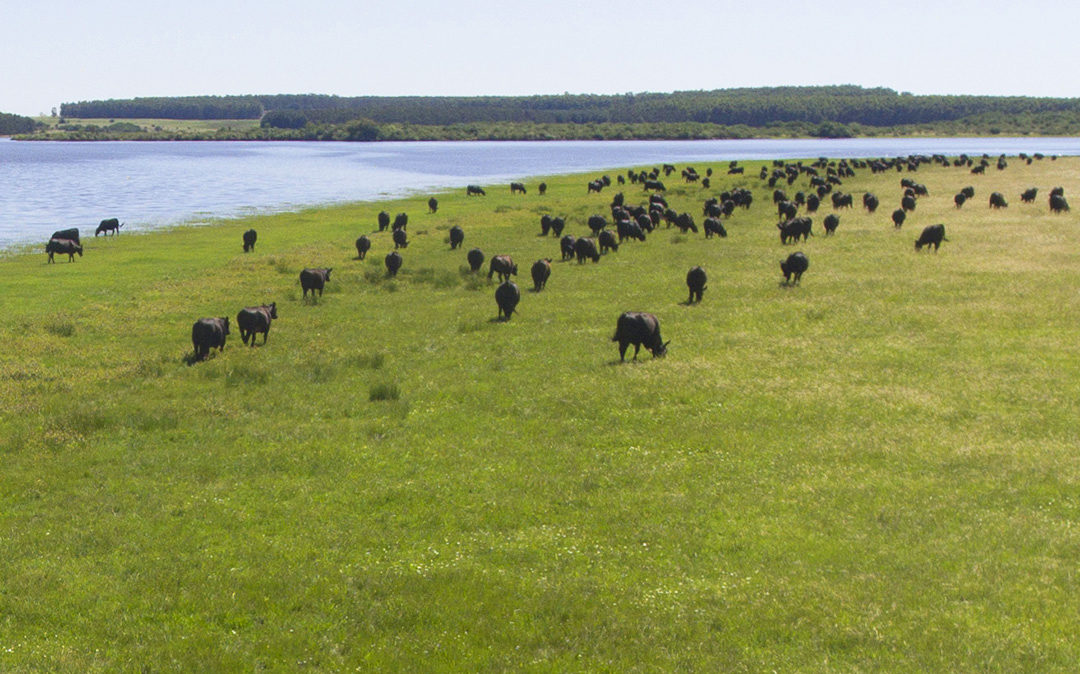


Posted: February 4, 2014 by Certified Humane®
White Oak Pastures
By the early part of the 20th century, when James’s son, Will, ran the farm, White Oak Pastures was harvesting cows and pigs every morning, six days a week. The meat was loaded on a mule-drawn wagon and hauled three miles up a dirt road to the town of Bluffton, where it was delivered to four general stores, a hotel and a boarding house.
Will Harris III, the fifth generation of Harisses to run the farm, says, “Our farm was the entity that produced local food for families that lived on the farm and the surrounding communities.” But that changed after World War II, when the Harrises joined the agriculturalindustrial revolution and began raising only calves, using growth-promoting hormones, antibiotics and high-grain feeds. The cattle were sent out West to be fed and then shipped all over the world.
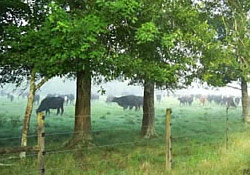
“Now, we’re going back to the way my granddaddy raised cattle,” said Harris. “We decided that consumers should be able to eat simple, natural, healthy beef that is raised the old-fashioned way.”
Harris and his family keep 650 “mama cows,” a bigger herd than his grandfather raised, but otherwise reflecting the same philosophy. “We’re back to producing food for a more local community. The cattle are once again being raised on Southern sunshine, unpolluted country air and the native grasses that grow in the fertile coastal soil of southwest Georgia.”
While his wife teaches school and one daughter, Jenni,18, is away at college, his 22-year-old daughter, Jessica, also a schoolteacher, keeps the books and manages the office at the farm. Jodi, age 15, is the family cowgirl, who loves working with the horses and cattle. His grandmother, Eloise, 85, still lives on the farm and makes lunch for the crew every day.
White Oak Pastures sells only high-quality ground beef that is derived from premium cuts — the loin, rib eye and sirloin. Grassfed beef is high in Omega 3 fatty acids and other nutrients.Harris believes he has found a niche among consumers who like the hearty taste, health benefits and sustainable farming practices inherent in raising grass-fed cattle.
“We do the right thing for our animals and for the soil and water on our land. We raise our beef for food safety, for its health benefits and, of course, for flavor,” said Harris.
To learn more, visit their website at: White Oak Pastures
For information on where to find other Certified Humane® products in your area, visit the “Shop” page of HFAC’s website.
Posted: February 4, 2014 by Certified Humane®
Vital Farms
In 2007, Matt O’Hayer and his wife, Catherine, founded Vital Farms with a small plot of farmland, 20 laying hens and a bucket of good intentions. Their mission: to bring high quality, ethically produced eggs to the table through the humane treatment of their hens through the Pasture-Raised farming method.
Animal welfare and the humane treatment of laying hens remains at the heart of Vital Farms’ mission. Their hens (the “Girls on Grass”, or “the Girls”, as they are affectionately called) are provided with plenty of room to roam (108 sq. ft. of pasture for each hen), fresh air, and sunshine year round. “We are very happy to be at the forefront of something that will be revolutionary in agriculture and provide people with a healthy and more ethical alternative to industrial eggs,” says Dan Brooks.
Vital Farms is one of the few pasture-raised egg companies in the United States. Their operations include over 100 farms based in Texas, Missouri, Arkansas, Tennessee, Oklahoma and Georgia, all raising laying hens in a total outdoor pasture system, with access to shelters at night. Vital Farms has experimented with a number of different breeds to be able to find birds that can handle weather extremes and outdoor living.
“Raising hens in an all-pasture system is complicated and relies on highly-trained employees well-versed in pasture-raising and the humane treatment of hens,” says Dan Brooks. “They must protect the hens from predators, as well as occasional inclement weather.”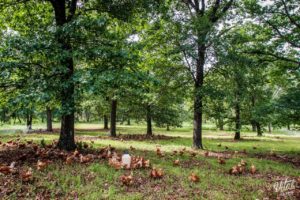
Vital Farms also created a unique channel for independent family farmers. Recognizing the vulnerability of small farms in the face of a tough economy, they work together with producers to improve their facilities and practices to meet the Certified Humane® standards as well as their own protocols.
“Through Vital Farms, these small independent farms can reach a broad customer base looking for ethically produced and sustainable eggs,” Brooks stated. “The success of the company is defined by its dedicated employees. Everyone who works for Vital Farms is really happy about what they are doing every day. It’s easy to work hard and have a lot of energy when you believe in what you’re doing.”
To learn more, visit their website at: Vital Farm
For information on where to find other Certified Humane® products in your area, visit the “Shop” page of HFAC’s website.
Posted: February 4, 2014 by Certified Humane®
Touchstone Farm
Touchstone Farm of Rappahannock County, Virginia, was started as a part-time project with 25 acres and a decision to raise low impact, grazing animals. Alan told Humane Farm Animal Care, “I was highly methodical at the beginning.” Alan began studying the subject of shepherding carefully, reading all the material he could find and taking cues from another local shepherd. By the time he attended the annual Maryland Sheep and Wool Festival, Alan had narrowed his search. He was looking specifically for a strong animal that would be suited to his part-time shepherding.
The Clun Forest breed, from Shropshire in Wales, fit the bill perfectly. “They have extremely high protein in their milk and meat,” says Alan. The Clun Forest is also a “hardy, low-input sheep,” which was essential to a farm that is a one-man operation. “Most lamb you eat in America is either Aussie lamb or from New Zealand,” says Alan. “It’s frozen and shipped here. You just don’t know anything about it.” Alan’s pursuit of the rich flavor of pasture raised lamb has kept him from feedlots and all packages are processed at Touchstone.
Since 1996 Alan’s flock has been nestled in the Blue Ridge Mountains. Touchstone Farm sheep enjoy lush green pastures of orchard grass, rye grass, clover, native herbs and forbs, and they drink water piped directly from Touchstone Springs. Touchstone Farm does not use any artificial or processed foods, antibiotics or growth supplements.
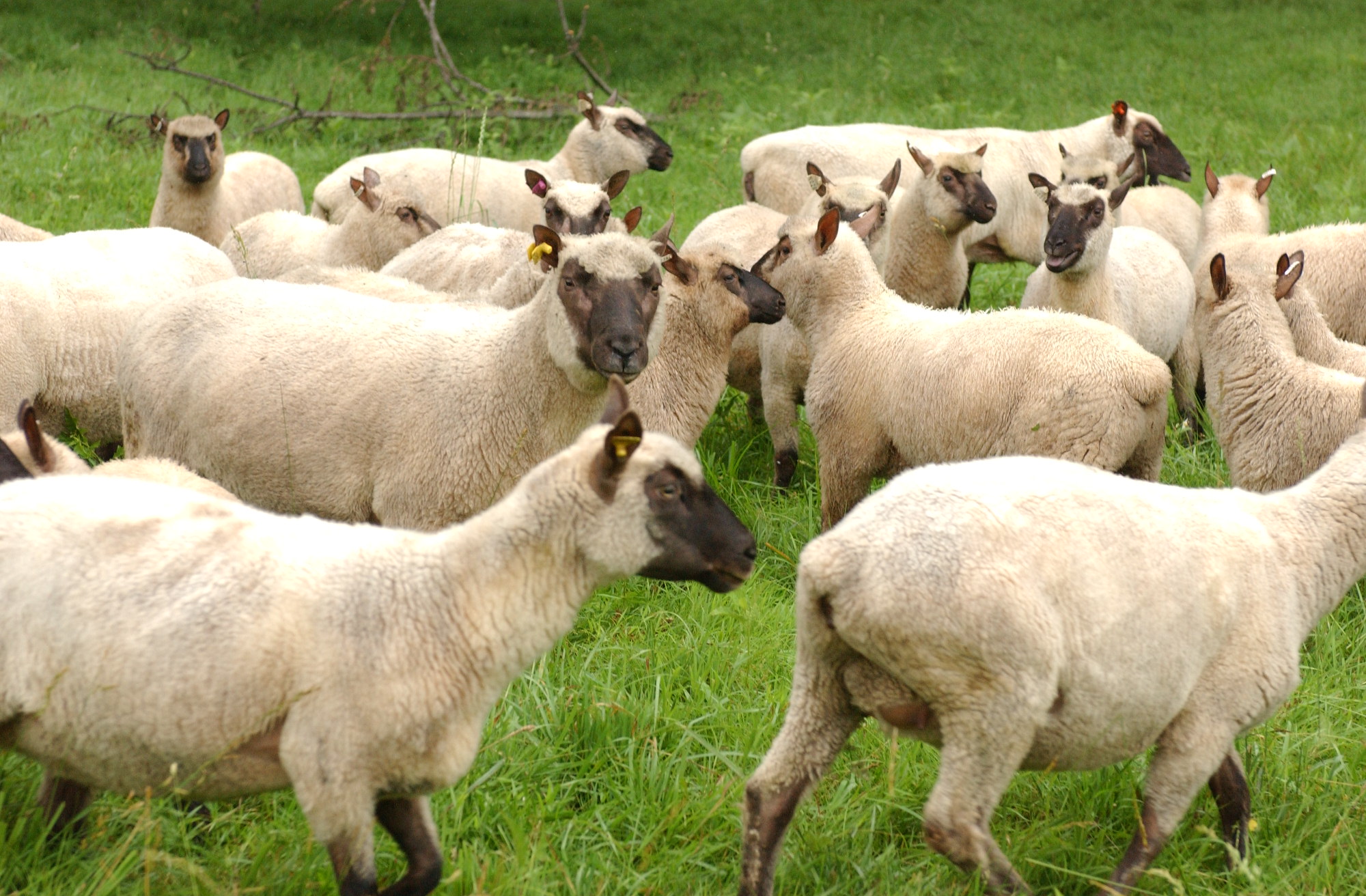
Originally a “weekend venture” it wasn’t long before Alan said he “was bitten hard by the farm bug.” At first, Alan sold lamb to friends and relied on word of mouth to spread his business. His sales have increased since his website began handling orders. Touchstone Farm offers custom cut lamb in the Virginia and Washington DC metropolitan area. Spring lamb is available from March through May and fall freezer lamb is available from September through October. Half and whole lamb packages are processed to customer specifications and you can order at http://www.touchstonefarm.org/tf/default.htm
Alan has grown the original 25 acres of Touchstone Farms to 200 acres of pastures, hayfields and forest. Struck by the beauty of the area and bitten hard by the farm-bug, Alan now usually telecommutes to his Washington, DC job.
For information on where to find other Certified Humane® products in your area, visit the “Shop” page of HFAC’s website.
Posted: February 4, 2014 by Certified Humane®
Summerhill Dairy
Summerhill Goat Dairy, located in Hanford, California has recently joined the Humane Farm Animal Care program as a newly Certified Humane® producer. Founded by John and Anneke de Jong in 1999, Summerhill was originally located in Southern California. Both John and Anneke grew up on family-run dairy farms, and originally had little knowledge about raising and milking goats. When the opportunity arose for them to purchase Summerhill and start raising dairy goats,they began researching everything they could about these gentle creatures. From reading books about goats to working with “goat experts”, Anneke and John found the idea of having a goat farm a new and exciting experience. With their acquired knowledge of goats, they created the ideal environment for their goats to feel safe, comfortable and be the healthiest they could be.
At the end of 2009, Summerhill Dairy relocated to Central California to a larger farm as it outgrew its former, rented facility. Today Summerhill Dairy’s’ 1,000 goats live on 100+ acres of land having access to indoor facilities as well as outdoor areas at all times. While transitioning to their larger farm in 2009, Anneke says, “Johnnie constantly tried to ‘think like a goat,’ only to discover on the first day after moving in, that they had outwitted him. The goats were able to open the gate latches and within hours were all mixed up!”
The large herd of goats found at Summerhill is pleasantly diverse with an array of breeds from LaManchas, Nubians, and Saanans to Alpines and Toggenburg goats. The goats are milked twice daily on the farm with an 84-goat rotary milking system originating from The Netherlands. Every animal uniquely creates milk in due time, therefore the European style rotary milking parlor allows for a more efficient milking process as goats are able to be released from the system when finished milking. The rotary parlor also ensures a less stressful milking process as goats are comfortably moved to the location one by one.
The fresh milk is immediately chilled once obtained from the goats, and then stored in silos. The goat milk is pasteurized at 161 degrees for 15 seconds. This High Temperature Short Time (HTST) system uses less water, power and energy than other methods. “We work hard to be good stewards of our resources. Our new dairy was built with an emphasis on animal comfort and care, energy efficiency and providing quality, natural goat milk for our customers,” John explains about his family run farm.
Once it has been pasteurized to ensure that the milk is free of bacteria or other harmful organisms, it is chilled again and put into quart size bottles. Milk is picked up daily from the farm and delivered to various stores in California.
As animal lovers, experienced humane animal handlers, and now considered goat experts themselves, John and Anneke are pleased to have been awarded the Certified Humane® label for their goat milk:“We have always been committed to the humane care and welfare of our goats. Our customers are very interested in how our animals are cared for and we wanted them to have an additional assurance that we were providing humane care.”
To learn more, visit their website at: www.SummerhillDairy.com
For information on where to find other Certified Humane® products in your area, visit the “Shop” page of HFAC’s website.
Posted: February 4, 2014 by Certified Humane®
Redwood Hill Farm
Located among the picturesque redwoods of Sonoma County in Northern California, Redwood Hill Farm & Creamery has been producing award-winning goat milk yogurt, kefir, and cheese for almost 50 years. Created in 2010, the company’s sister brand, Green Valley Organics, makes lactose-free yogurt, kefir, sour cream, and other specialty dairy products. Redwood Hill Farm & Creamery’s vision is to be a “different kind of creamery,” reflecting the values and sustainability of a family farm while creating delicious dairy products of the highest quality for everyone to enjoy.
Beginnings
In 1968, the Bice family moved from Los Angeles to Sebastopol, a quiet town about 60 miles north of San Francisco. Inspired by the Back to the Land movement, the Bices started a farm and goat dairy that would nourish not only their own family, but many others for generations to come. Although this new rural lifestyle took some getting used to, the Bice children quickly fell in love with the farm and animals, raising and showing goats through 4-H. Soon the family had accumulated about 80 goats—enough for an entire herd—and began selling goat milk to local health food stores under the Redwood Hill Farm label.
Growing the Business
In 1978 Jennifer Bice, the oldest of the 10 Bice children, assumed ownership of the farm along with her late husband, Steven Schack. Guided by the same values as her parents—producing delicious and nourishing food, treating animals humanely, and giving back to the land—she and Steven expanded the business to produce a greater variety of goat milk products and diversified the dairy goat-breeding program. In 2010, Redwood Hill Farm & Creamery created Green Valley Organics so that people with lactose intolerance could bring real dairy back into their lives, enjoying its health benefits and great taste without digestive troubles.
food, treating animals humanely, and giving back to the land—she and Steven expanded the business to produce a greater variety of goat milk products and diversified the dairy goat-breeding program. In 2010, Redwood Hill Farm & Creamery created Green Valley Organics so that people with lactose intolerance could bring real dairy back into their lives, enjoying its health benefits and great taste without digestive troubles.
A master cheesemaker and expert goat breeder, founder Jennifer Bice runs Redwood Hill Farm & Creamery to this day. Her passionate dedication to goats, as well as her commitment to serving a community of people who could otherwise not enjoy real dairy, was foundational in creating widespread consumption of artisan goat milk products and lactose-free cow milk dairy. Green Valley Organics is the only line of cultured lactose-free dairy in the country.
First Certified Humane® Goat Dairy
Always on the cutting edge of taking care of people, animals and the planet, Jennifer Bice’s herd of Saanen, Alpine, Nubian and La Mancha
planet, Jennifer Bice’s herd of Saanen, Alpine, Nubian and La Mancha
dairy goats was the first to become Certified Humane® in the U.S. in 2005. Although her farm had been using humane practices consistent with the Certified Humane® standard for decades, she wanted to give consumers the additional confidence of a third-party certification and the assurance that high standards of animal care were being met.
As the business grew, Redwood Hill Farm & Creamery brought on additional dairies to ensure a steady milk supply. In 2012, the company took their commitment to animal welfare one step further, helping each of their supplying dairies achieve independent certification from Humane Farm Animal Care (HFAC). Being Certified Humane® is now a requirement for all of the family farms that supply milk to Redwood Hill Farm and Green Valley Organics.
Sustainable Values
Sustainability has remained a guiding principle for Jennifer Bice throughout the years. The company’s certified organic creamery, just three miles away from the original Redwood Hill Farm, runs 100% on renewable energy. Two acres of rooftop solar panels provide 85% of its energy needs and the remainder comes from sources like geothermal and wind, via Sonoma Clean Power. Extensive water-saving measures are in place, including a system that pumps graywater to neighboring fields for irrigation. And the company is continually taking steps to make its creamery more sustainable through recycling, insulation, eco-sanitizers, LED and sensor lighting, and electric vehicle charging stations.
Sustainability means investing in the community as well. For over 30 years, Redwood Hill Farm & Creamery has supported youth and agricultural organizations, local health needs and environmental causes, including Community Child Care Council of Sonoma County (4Cs), Center for Climate Protection, Ceres Community Project, Daily Acts, Food for Thought, Land Paths, Marine Mammal Center, Rotary Club Sunrise, Sonoma Humane Society, and Sonoma Land Trust.
To learn more, visit Redwood Hill Farm & Creamery’s website at: Redwood Hill Farm
For information on where to find other Certified Humane® products in your area, visit the “Shop” page of HFAC’s website.